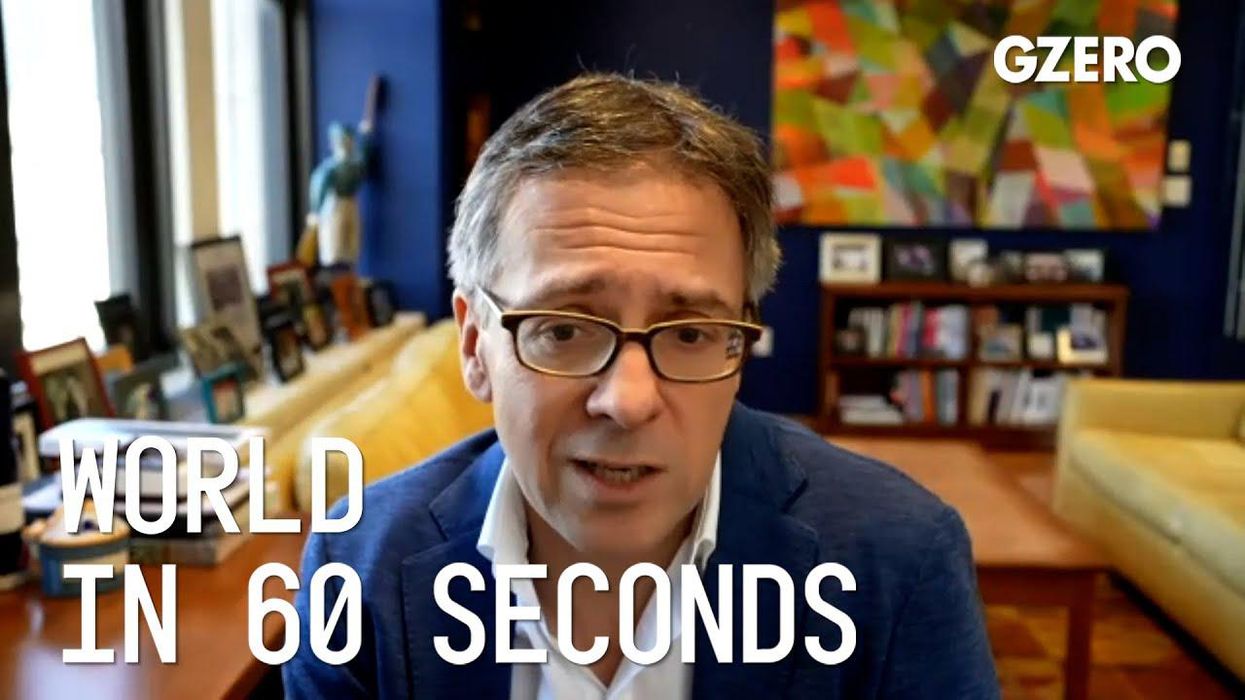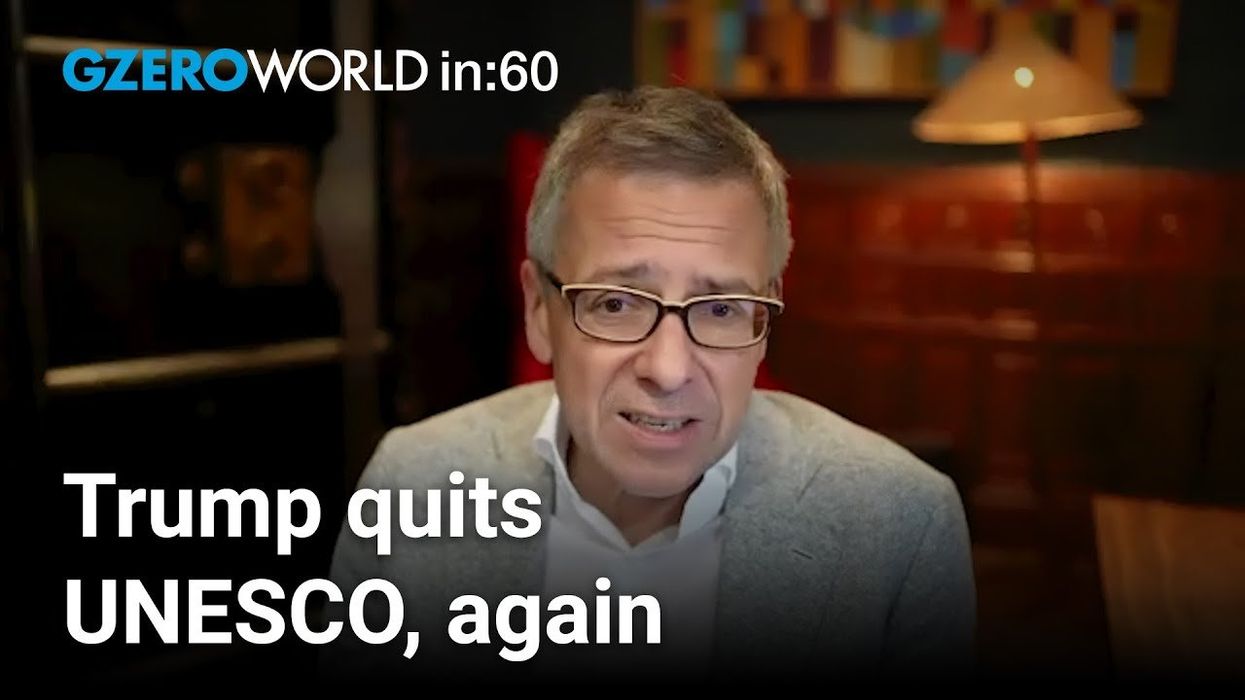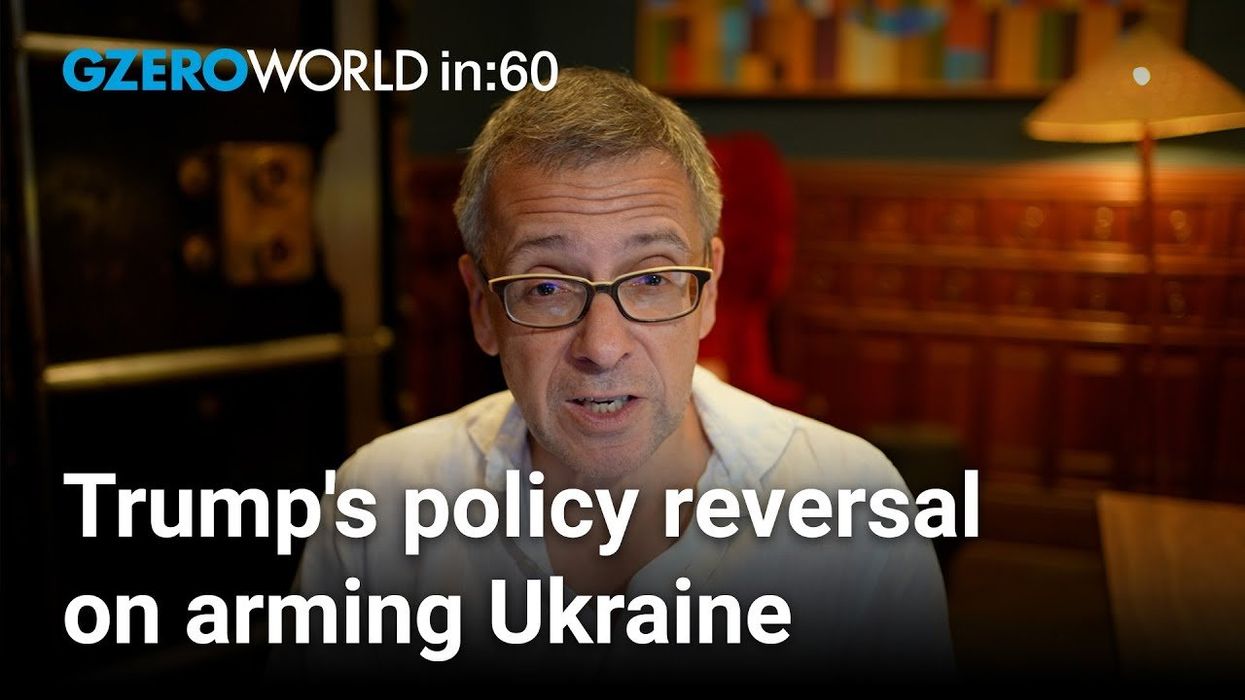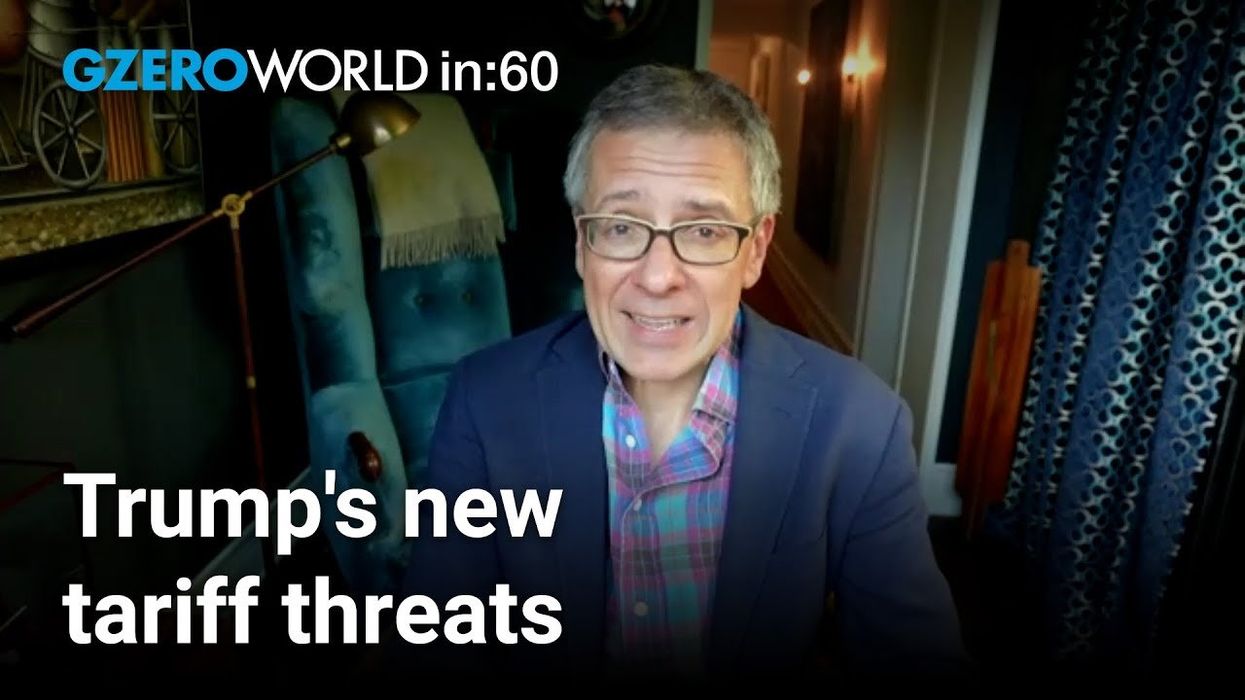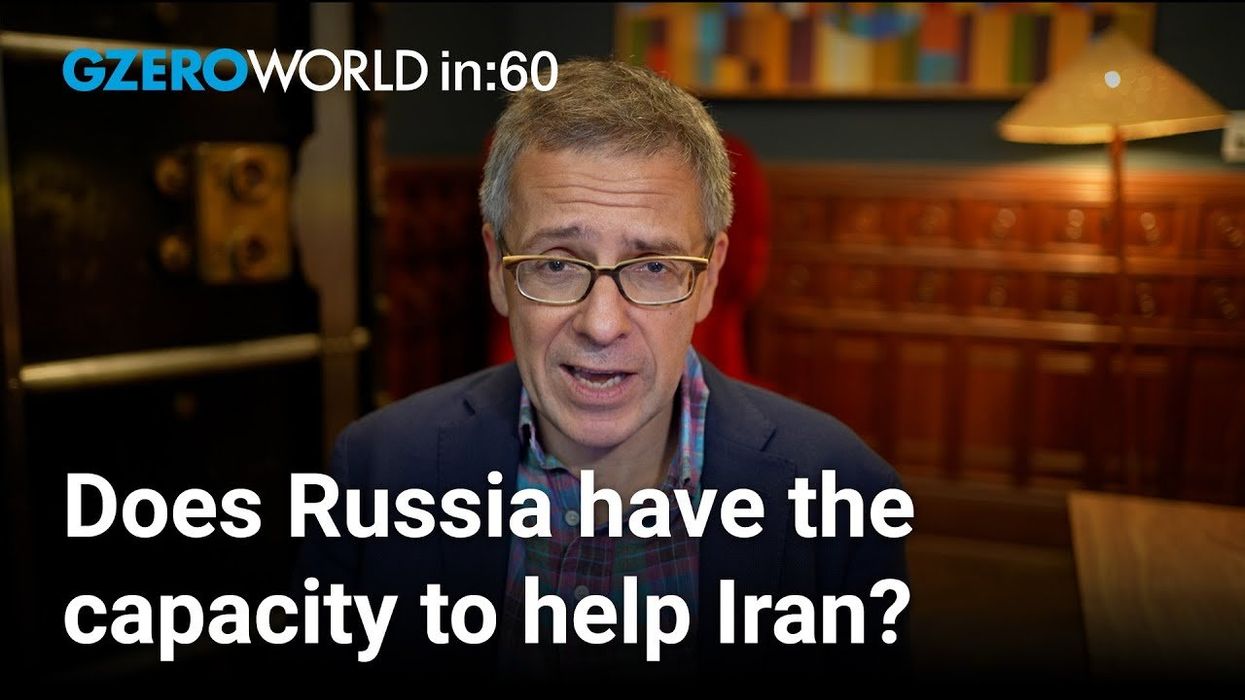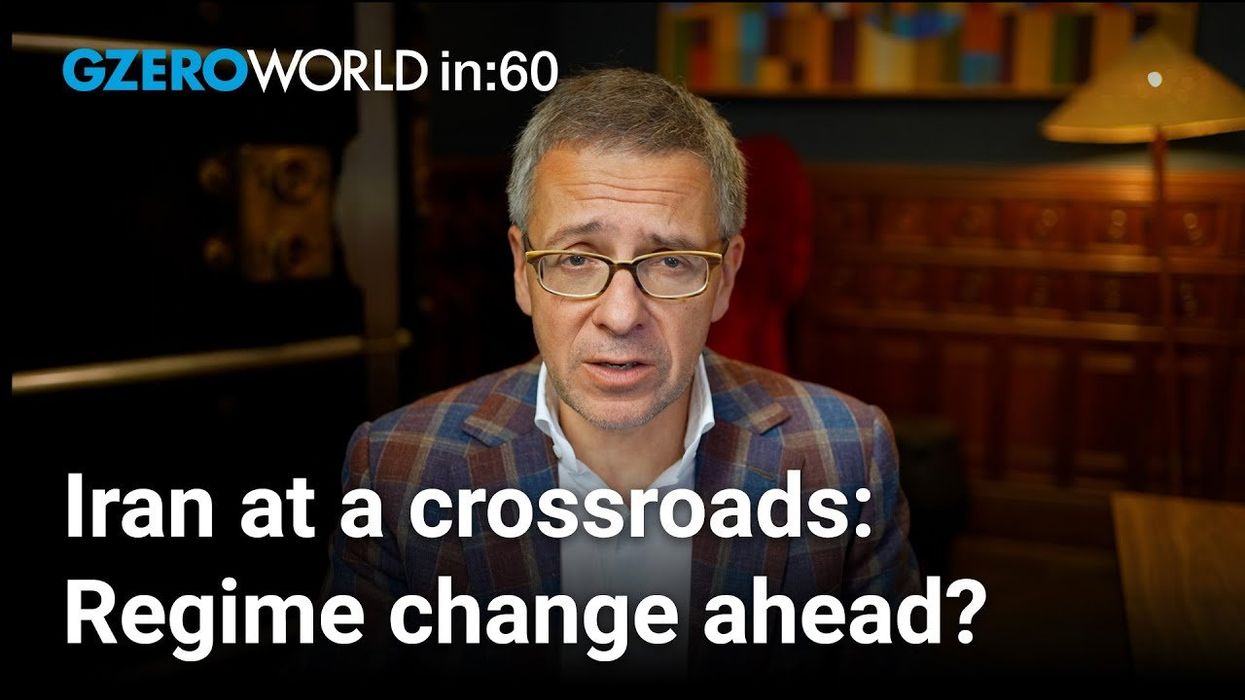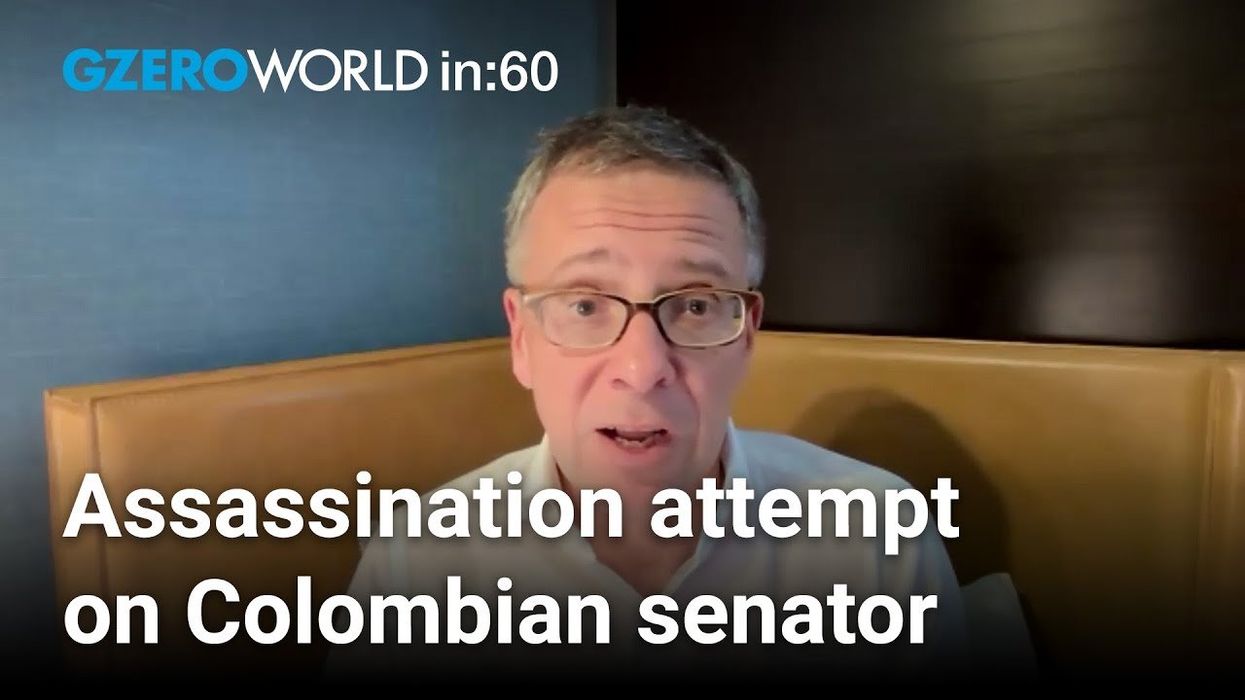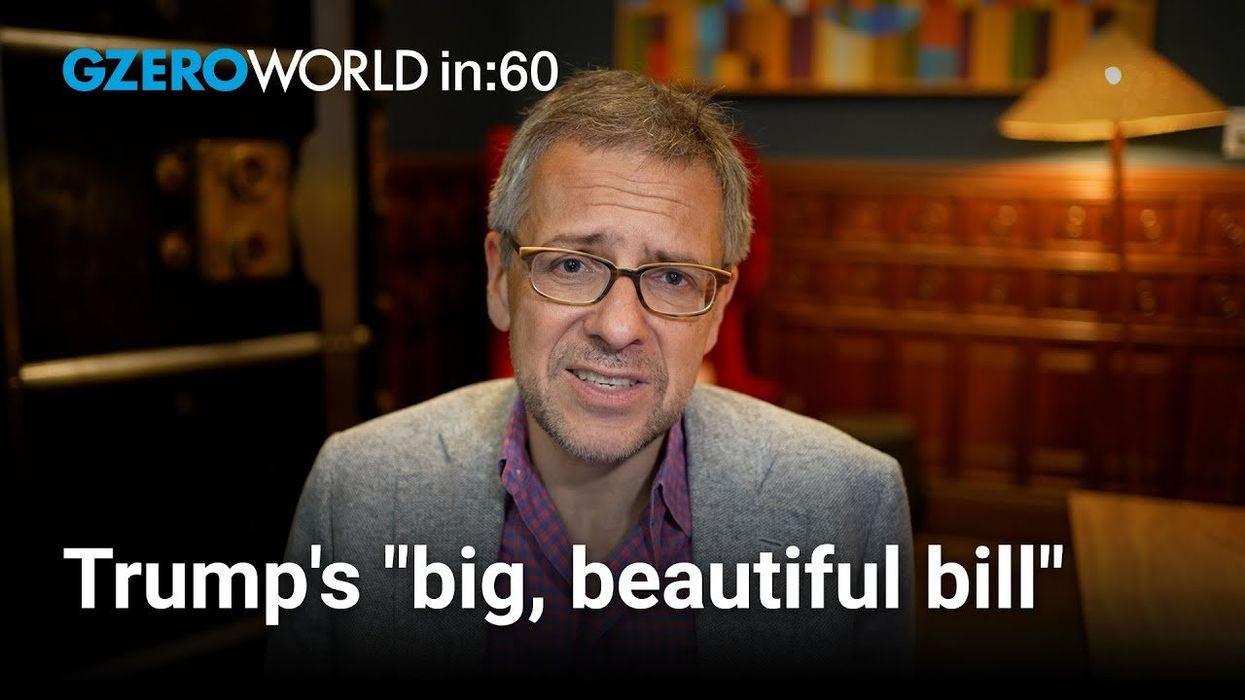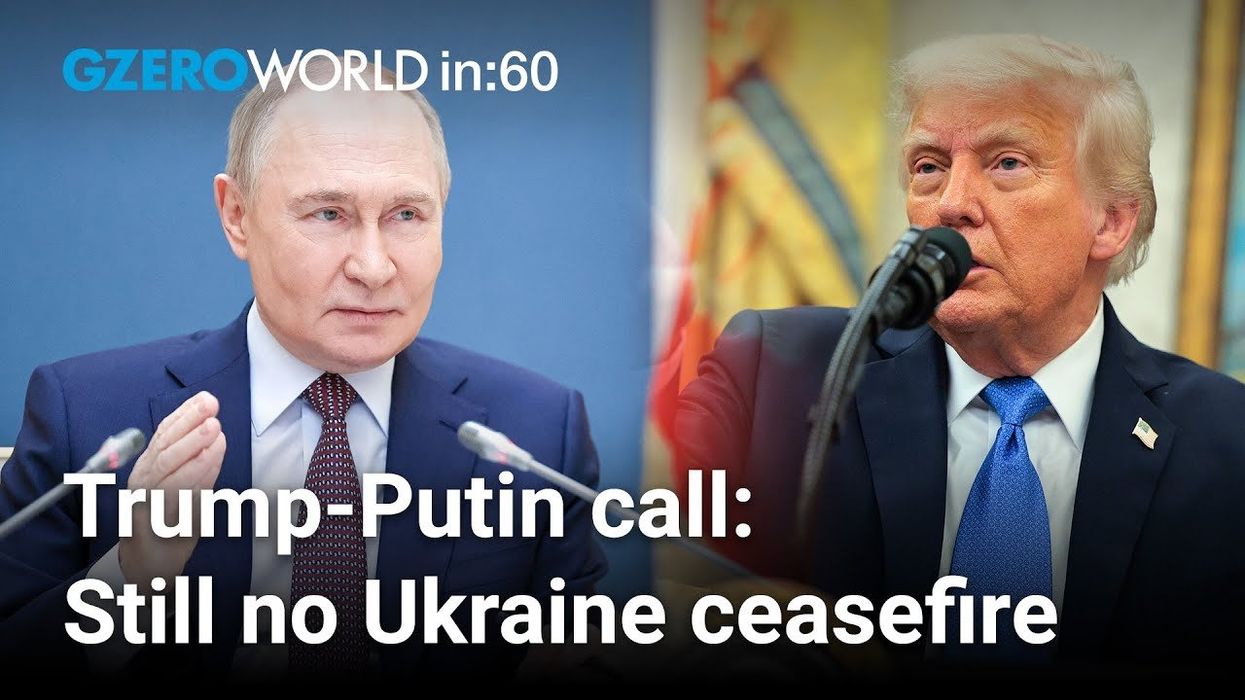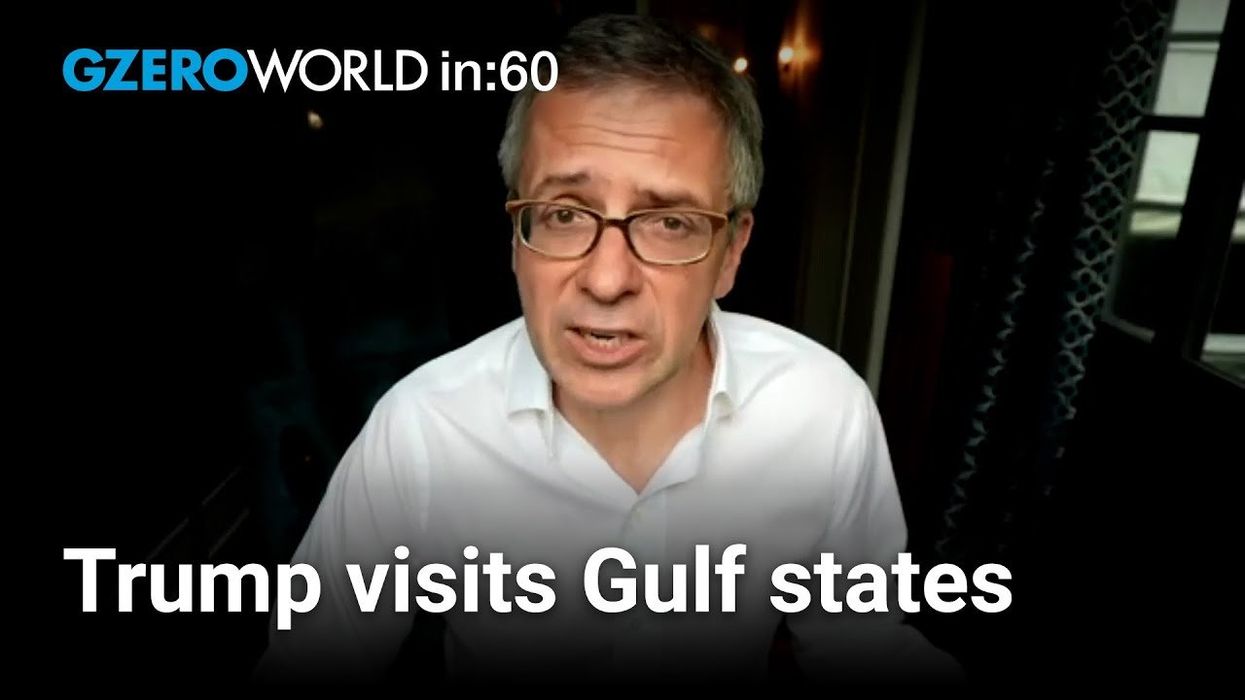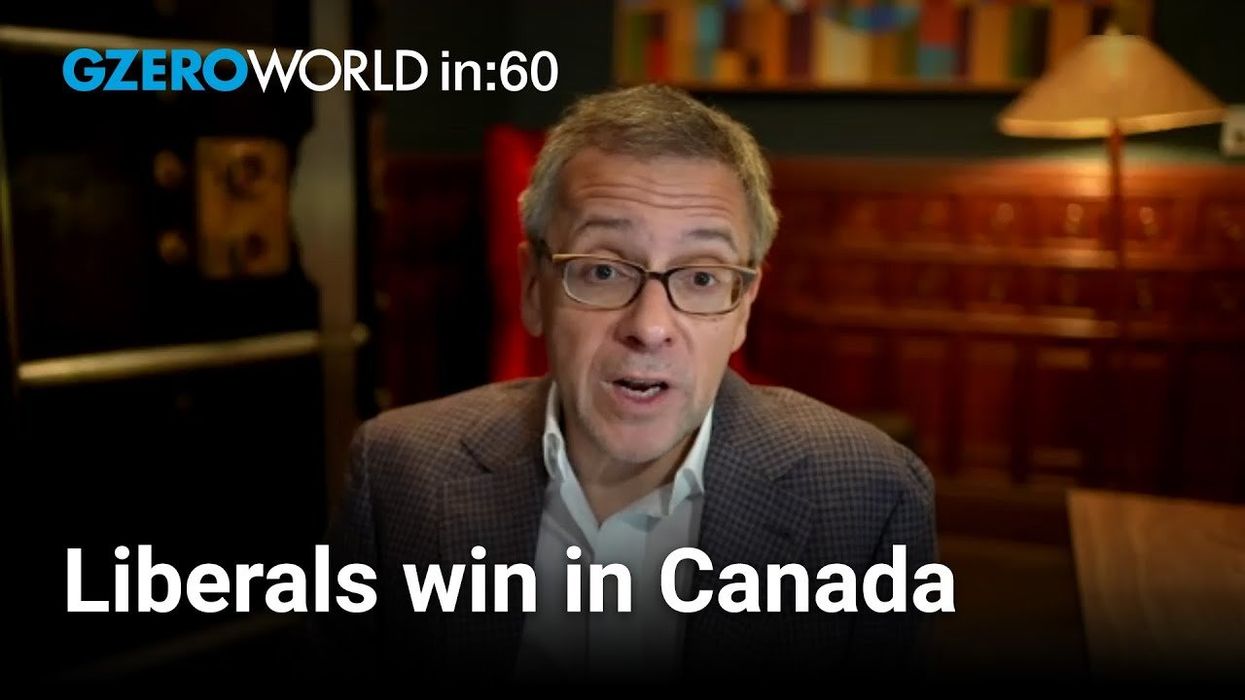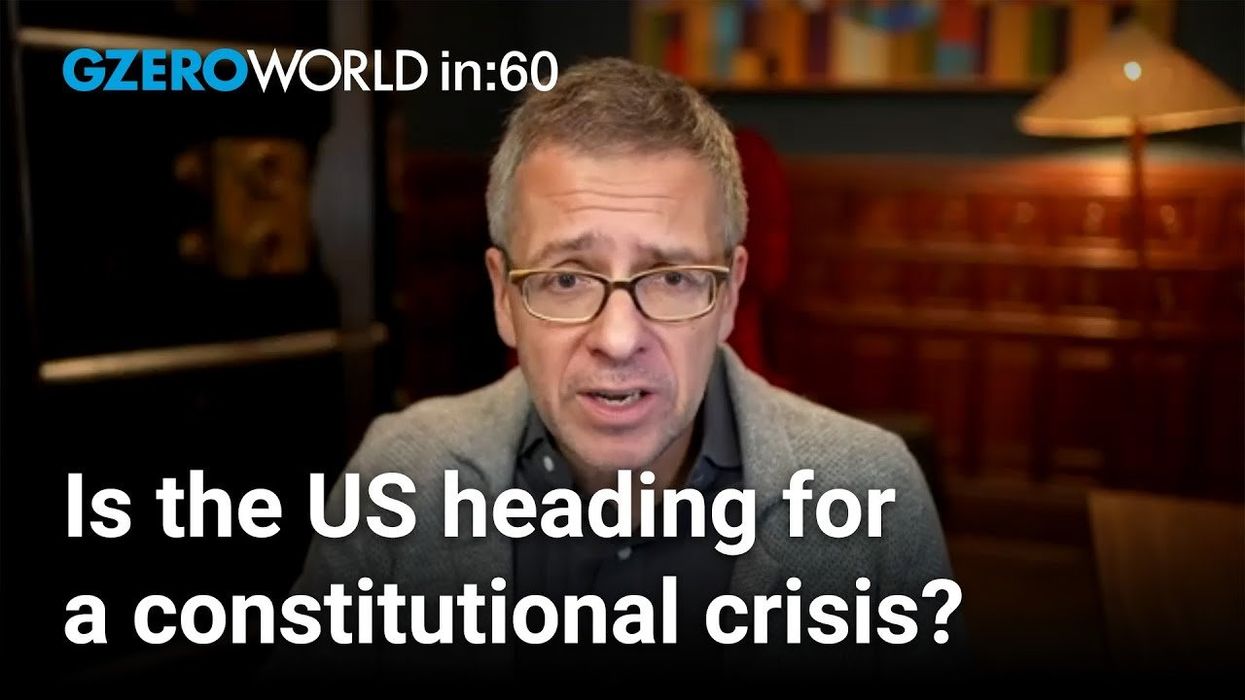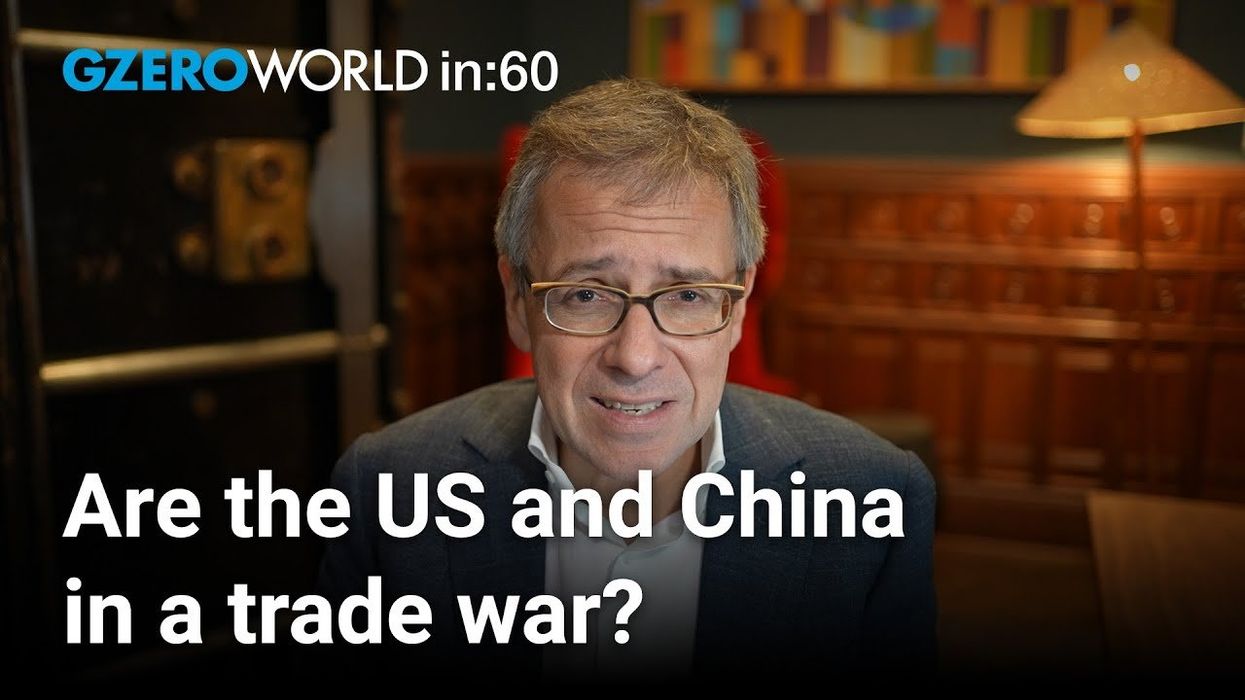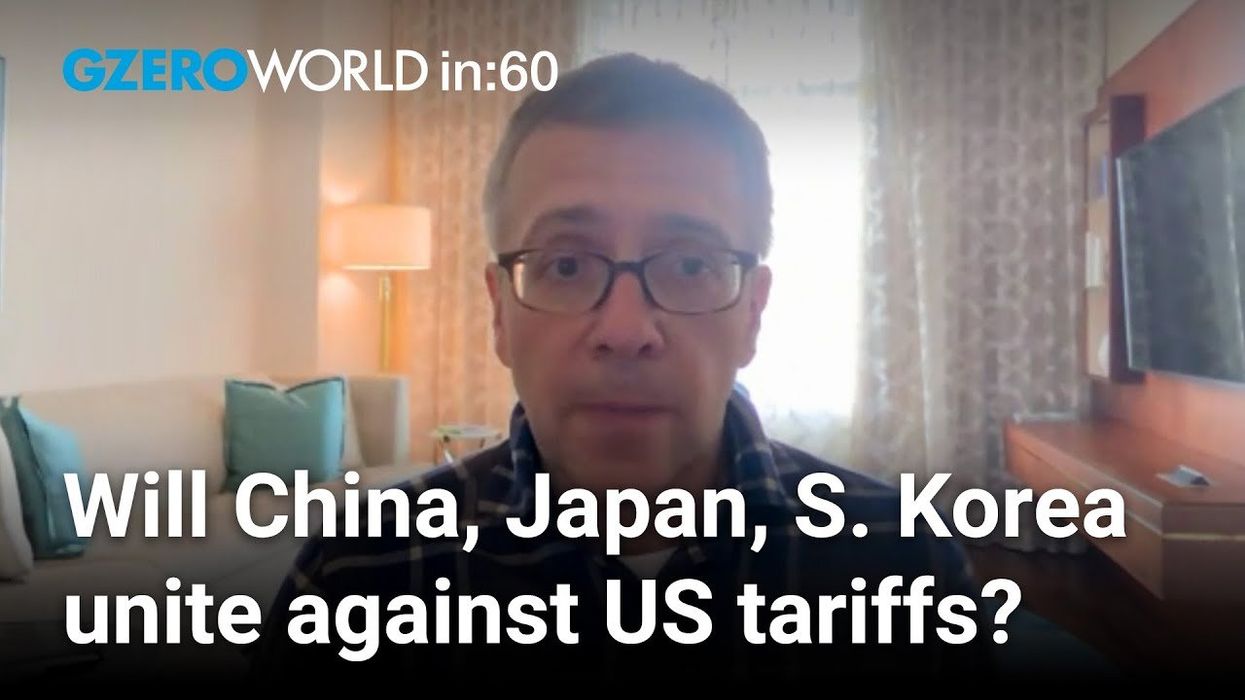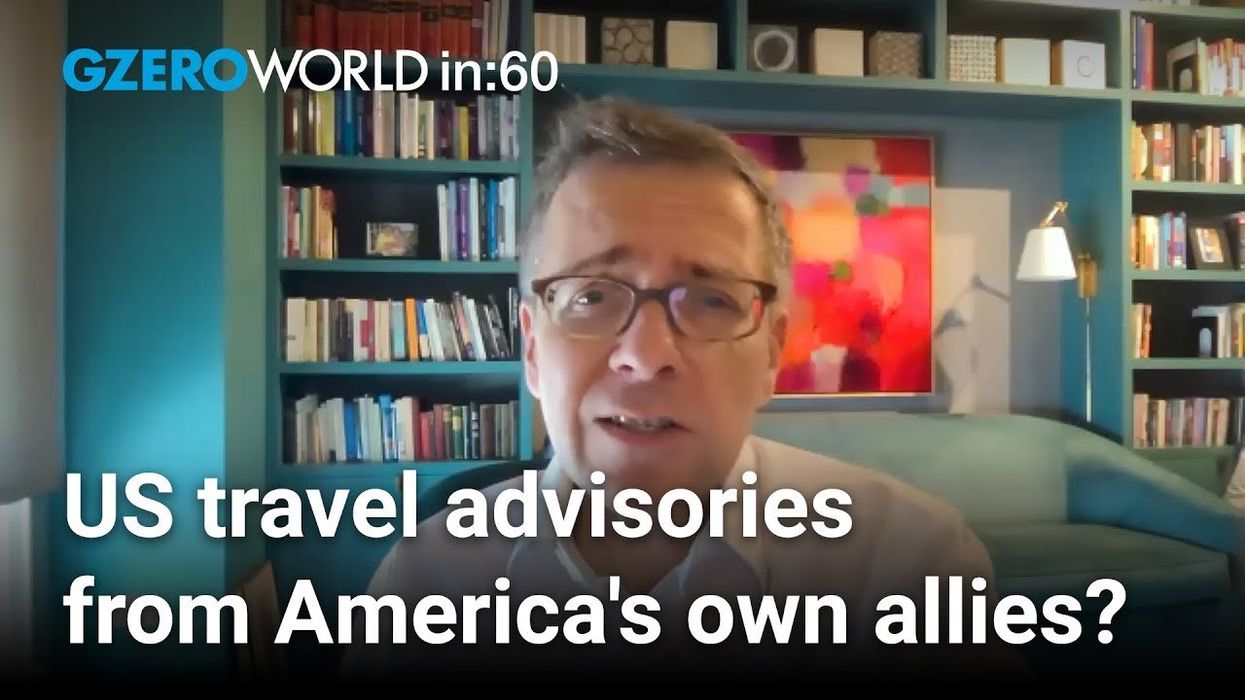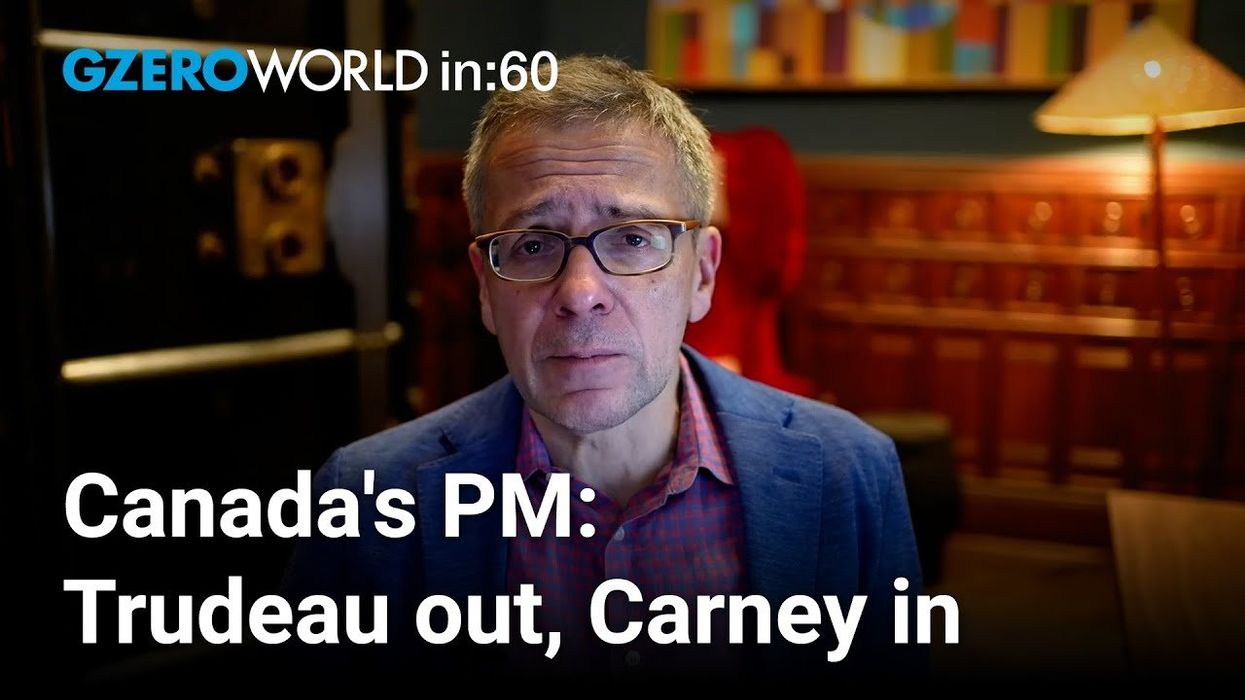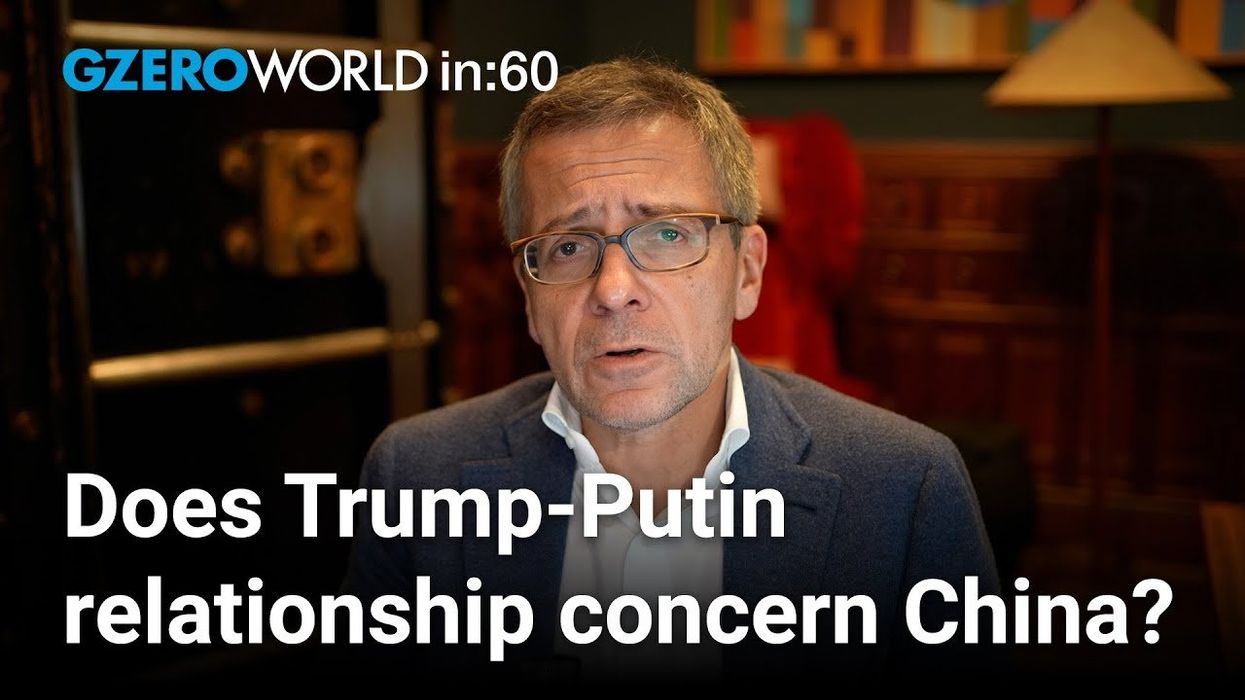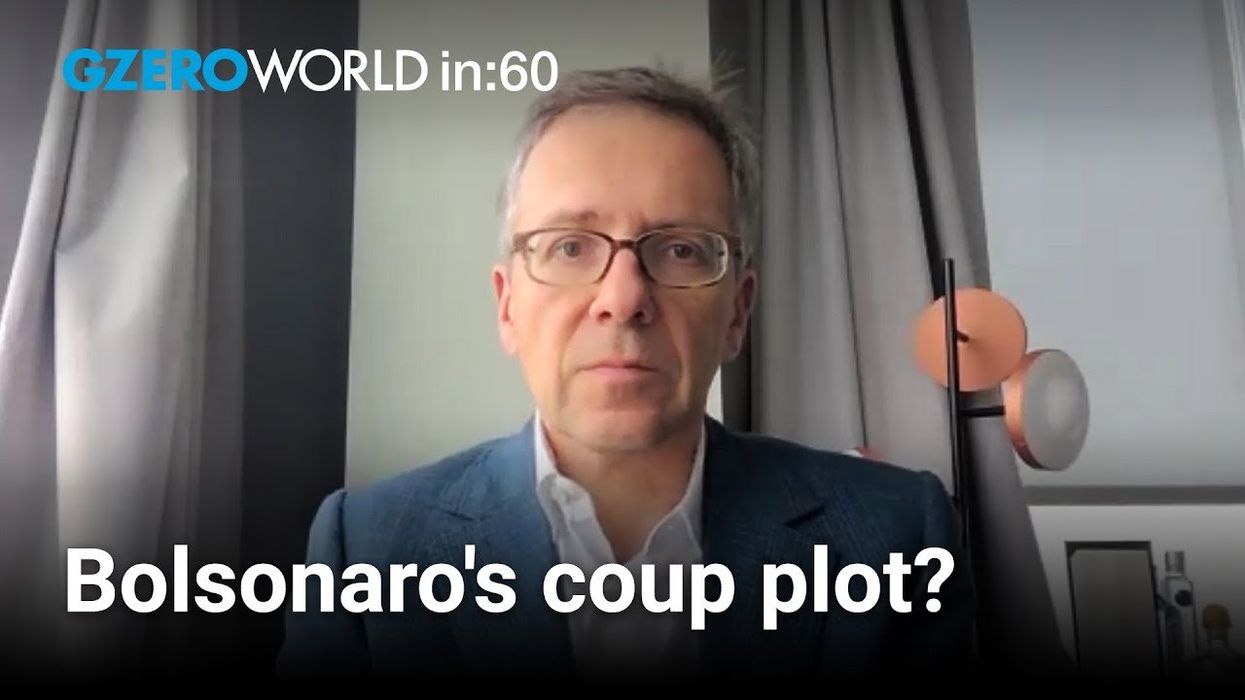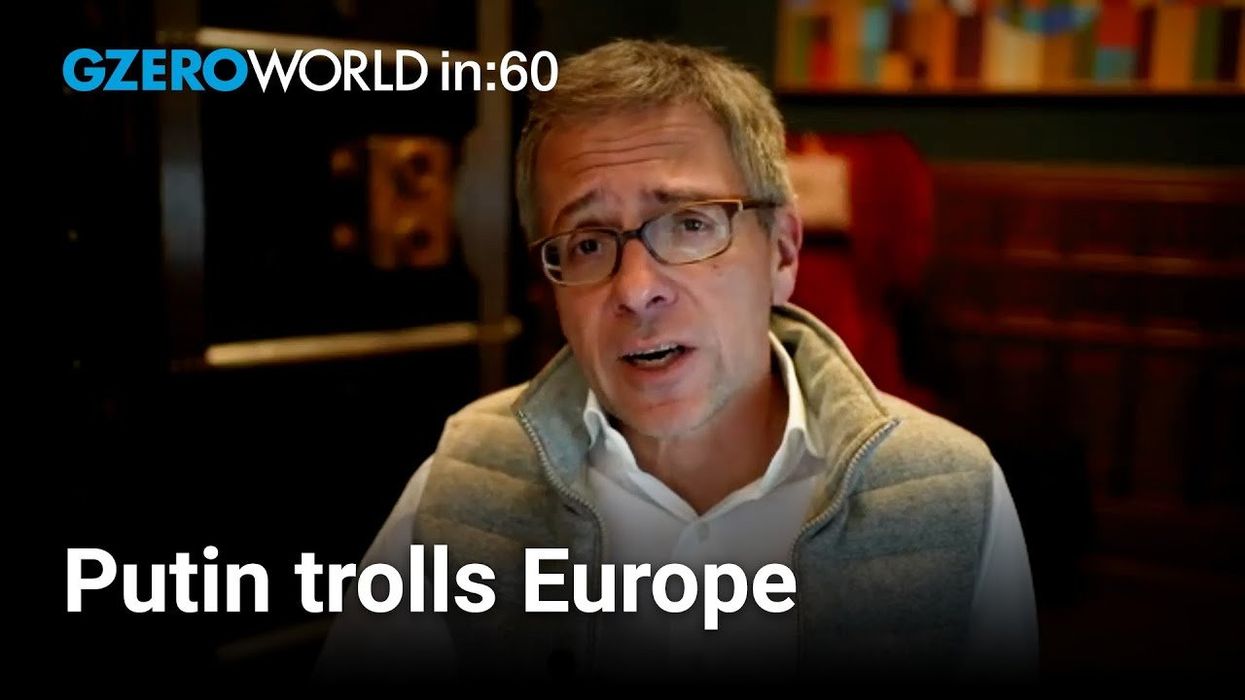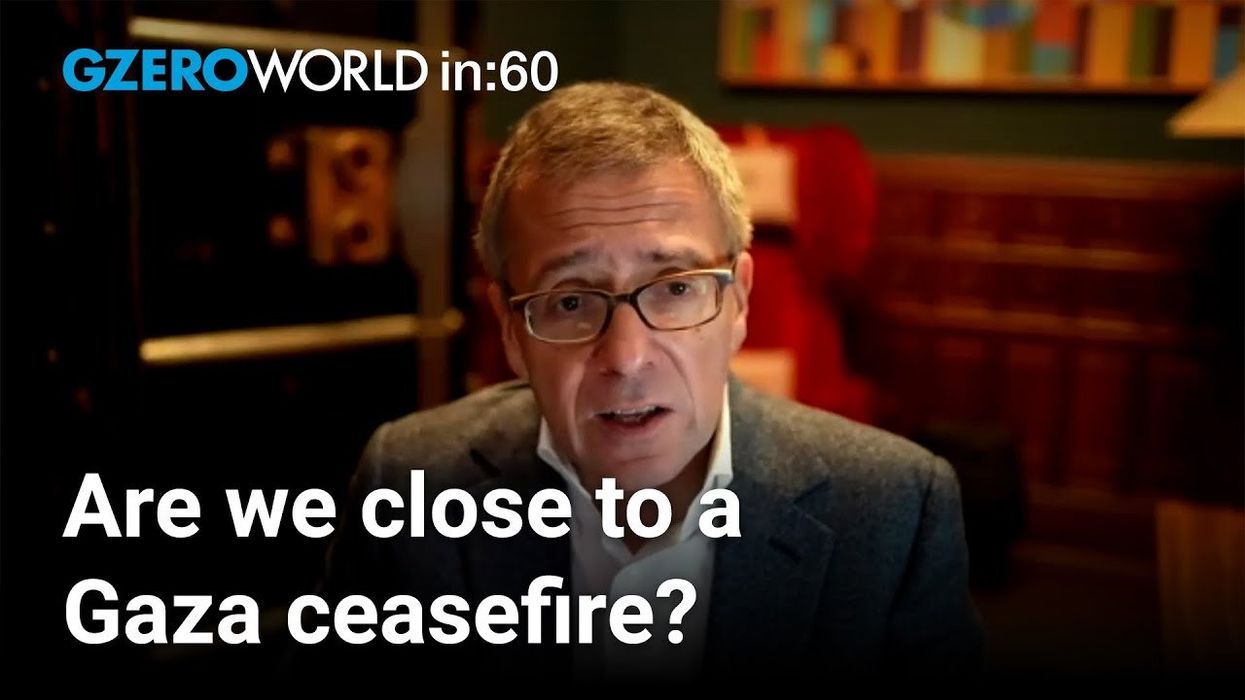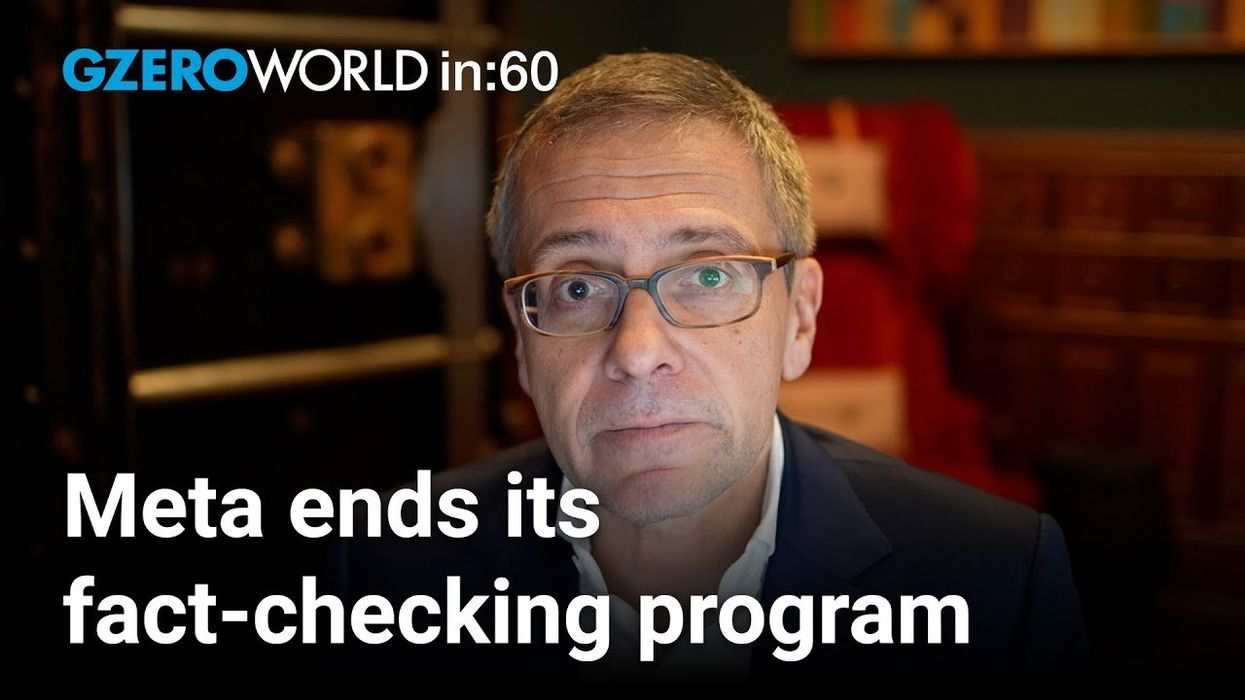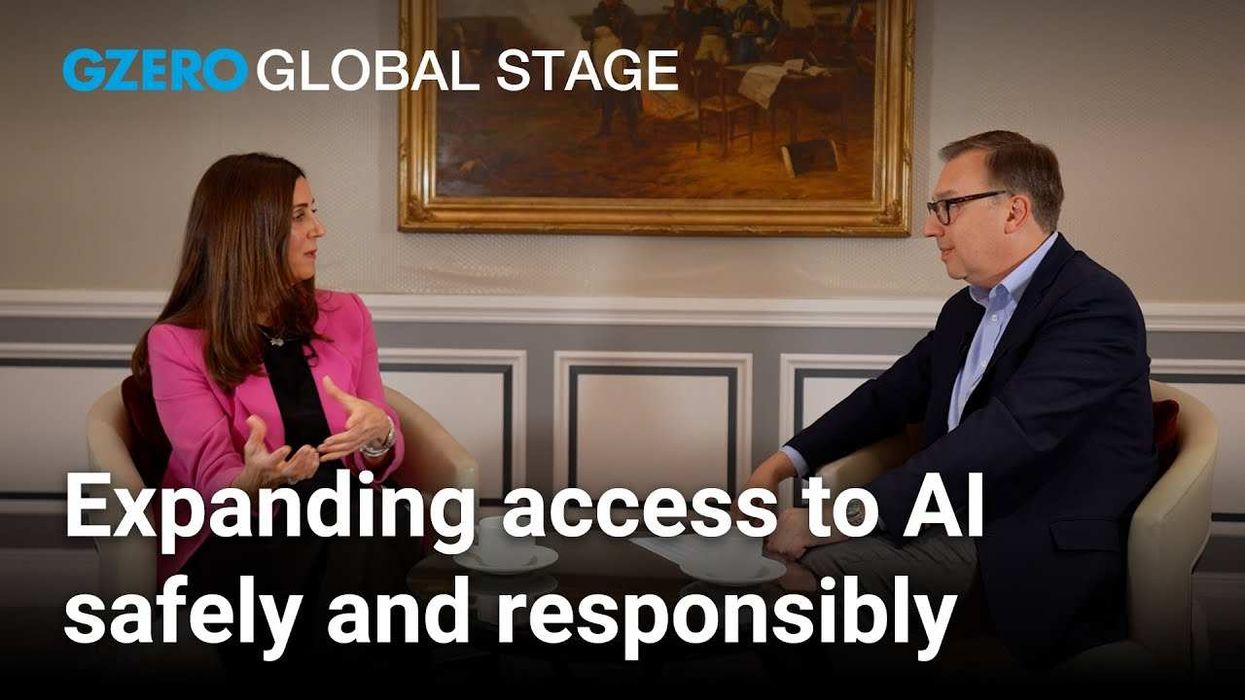VIDEOSGZERO World with Ian BremmerQuick TakePUPPET REGIMEIan ExplainsGZERO ReportsAsk IanGlobal Stage
Site Navigation
Search
Human content,
AI powered search.
Latest Stories
Start your day right!
Get latest updates and insights delivered to your inbox.
What are the ramifications of the US ban on Russian oil imports? Are there any surprises on Russia's released list of unfriendly countries? Also, is President Xi facing a hard wartime choice for China? Ian Bremmer shares his insights on global politics this week on World In :60.
First of all, what are the ramifications of the US ban on Russian oil imports?
A couple of things. First of all, the United States doesn't really get much oil at all from Russia. Oil product is a different story. Interesting to see where exactly that lands but it's definitely a significant message from the United States. Last week, the Americans weren't planning on that but given a lot of domestic pressure, including from Congress, the Biden administration decided to move on it. One problem I see is that this was not well coordinated with the Europeans, almost every other message so far in response to the Russian invasion of Ukraine has been incredibly strong coordination between the Americans and the NATO allies. That is not the case here. And I think that is a challenge. The Europeans are not going to be willing or able to go nearly as far as the Americans because they have a hell of a lot more to lose and that potentially makes the NATO alliance look a little bit weaker on this issue. They're going to need to communicate well on it.
Are there any surprises on Russia's released list of unfriendly countries?
Well, surprise is just how many of them there are, frankly. I mean this is dozens of countries that are involved in sanctions, involved in providing military support for Ukraine and the Russians consider all those unfriendly, of course, Ukraine on the list too. I mean a little surprised to see countries like Monaco and Switzerland on that list because historically neutral and the Russians do an awful lot of business there. I will say that I think a lot more needs to be done in terms of the oligarchs, about half of their wealth is held outside of Russia. And it's not just the UK. It's also places like Cyprus. We've seen very, very little movement to actually squeeze and freeze a lot of those assets. They could be doing a lot more. It's an area that I'm going to be watching closely over the coming days.
Also, is President Xi facing a hard wartime choice for China?
Not in his view. In his view, I mean he's got Chinese media that are actually embedded with Russian soldiers fighting on the ground in Ukraine, strict censorship regime, nothing pro-Ukrainian, nothing anti-Russian in terms of the war on the ground in China. The Chinese strategically are aligned very much with the Russians here and not with the United States and the West. Now they want to portray themselves as being more neutral, being more constructive. You can still do business with the Chinese but the reality is, and they still, they very much would like to see a negotiated settlement to this conflict. They don't want a second Cold War, but to the extent that the fighting is continuing, it's very clear which side of the battle that they are actually on. And this is a problem ongoing for the Americans and the Europeans. Very interesting to see Xi Jinping talk to both Macron and Scholz in the past hours to say, "Hey, we'd like to be involved in any diplomatic settlement." I'm certain that would've been prepped with Putin in advance of Xi Jinping making that announcement.
Keep reading...Show less
More from ask ian
Trump pulls US out of UNESCO, again
July 22, 2025
Trump announces new plan to arm Ukraine
July 15, 2025
Are NATO allies aligned on Iran?
June 24, 2025
Will Iran’s regime survive?
June 18, 2025
Trump-Musk rift over Trump's "big, beautiful bill"
June 04, 2025
What is Trump after in his latest Gulf states tour?
May 13, 2025
Why Mark Carney’s victory won’t heal the US-Canada rift
April 29, 2025
Trump tariff is starting a US-China trade war
April 08, 2025
What if Japan & South Korea sided with China on US tariffs?
April 01, 2025
US travel warnings issued by its closest allies
March 25, 2025
US-Canada trade war helps Mark Carney's election prospects
March 11, 2025
Why Trump won’t break the Putin-Xi alliance
March 04, 2025
Will Trump & Musk punish Brazil over Bolsonaro indictment?
February 19, 2025
Putin trolls Europe about "the master" Trump
February 04, 2025
DeepSeek puts US-China relations on edge
January 30, 2025
Gaza ceasefire likely as Biden and Trump both push
January 14, 2025
Meta scraps fact-checking program: What next?
January 07, 2025
GZERO Series
GZERO Daily: our free newsletter about global politics
Keep up with what’s going on around the world - and why it matters.

